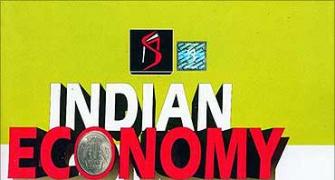JPMorgan Asset Management chief investment officer Nandkumar Surti discusses the effects the announcements made in the Union Budget for 2011-12 could have on the Indian market. What are the positives for the market from the Union Budget?
What are the positives for the market from the Union Budget?
The government has pegged the fiscal deficit for 2011-12 at 4.6 per cent of GDP. This is very positive, given that the fiscal deficit is the one of biggest concerns we have. Also, the government has moved oil subsidies from off-balance sheet to on-balance sheet.
This has led to removal of any grey area in calculation of the fiscal deficit. However, if the oil prices remain at an elevated level, achieving the current target of fiscal deficit can be a challenge. However, we are not ruling out further increase in fuel prices.
Increase in infrastructure spends by 23 per cent and recapitalisation of banks by `20,000 crore (Rs 200 billion) is a positive from a macro standpoint.
Since the Budget is over, what are the other triggers that will determine market direction?
On the whole, we would term the Budget as neutral. There are a few external developments, like higher growth in developed markets and oil price rise on the back of political turmoil in West Asia, which are more likely to determine the direction of the markets in the near term.
The Budget is well on its path of fiscal consolidation and, if the event risks are not substantial, we should start seeing the markets consolidating and rebounding in the next 3-6 months.
Do you expect the developed markets to outperform emerging markets in 2011?
We are seeing improved economic data from the developed markets, led by the US. At the same time, emerging markets are plagued with issues like inflation, tight monetary policy and withdrawal of economic stimulus.
While growth prospects for emerging markets is good, valuations are tight in many cases. As such, any negative data flow from emerging markets and incremental positive news from developed markets could result in flows being diverted from emerging to developed markets in the near term.
However, for India, GDP growth expectations are still in the range of 8-9 per cent and earnings growth are expected to be in the range of 20-25 per cent.
It is possible that this calendar year will see less FII investments than last year, but to conclude that they are not finding Indian markets attractive is premature.
In our view, international investors are underexposed to India as an asset class. Despite current problems, we expect India to continue to grow at a significantly faster rate than the world and maintain its attractiveness for international investors.
How much portfolio has your AMC churned since November 5 highs, given the 16 per cent correction seen in the Indian markets?
As a policy, we do not take cash calls on the market. However, given the extreme tightness in liquidity and consequent rise in deposit and lending rates, we have reduced our weightage marginally to interest-rate-sensitive sectors like financials and auto and increased our weightage on technology.
Which sectors has JPMorgan AMC invested in currently?
We are more positive on the consumption theme than infrastructure or investment sectors, where government decisions will make a difference.
On the commodity front, we are a little more positive than earlier, since analysts have upgraded US' gross domestic production forecasts for 2011.
However, this might be a bit negative for margins of Indian companies that are users of these commodities and cannot pass it on due to competitive pressures.










